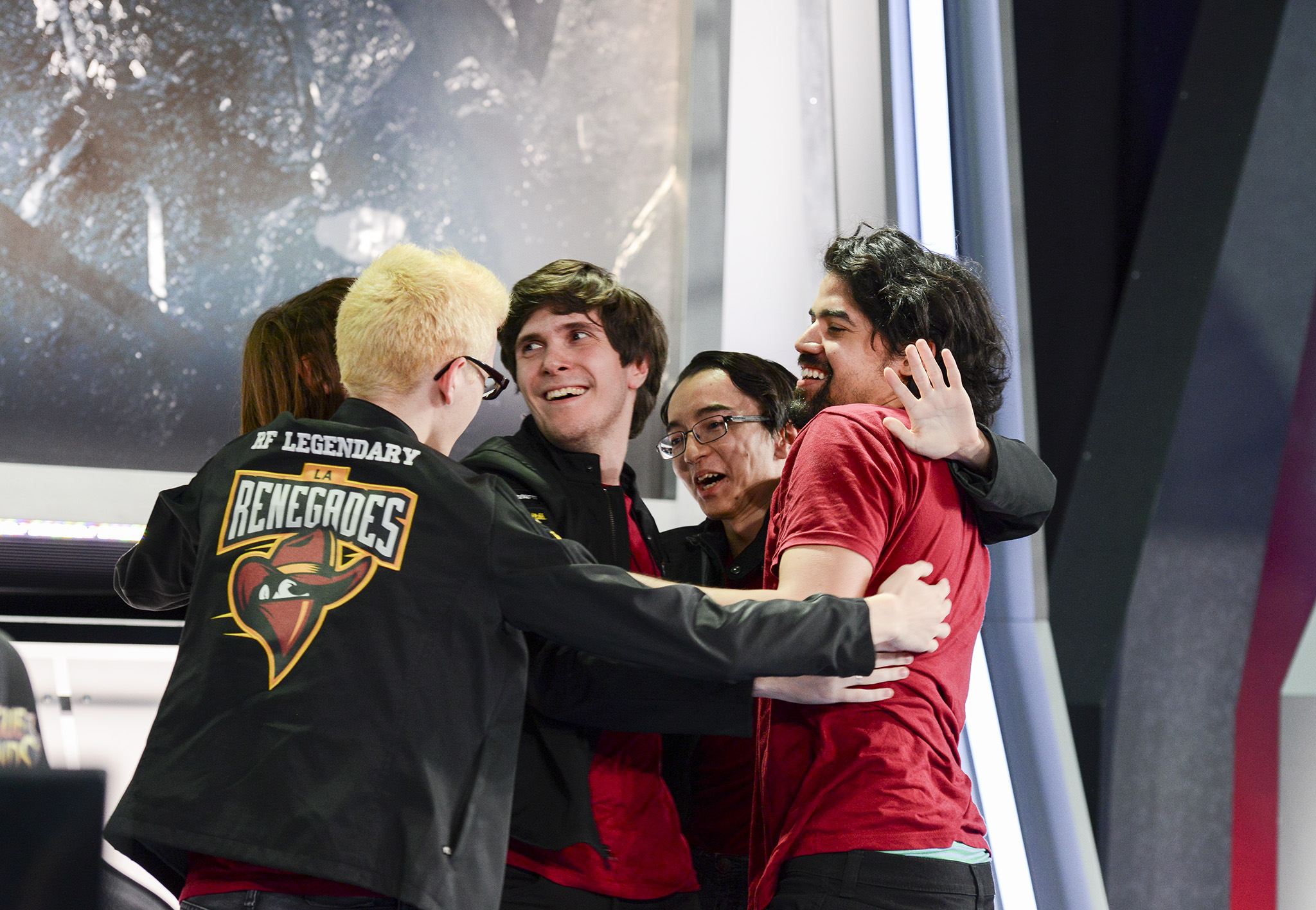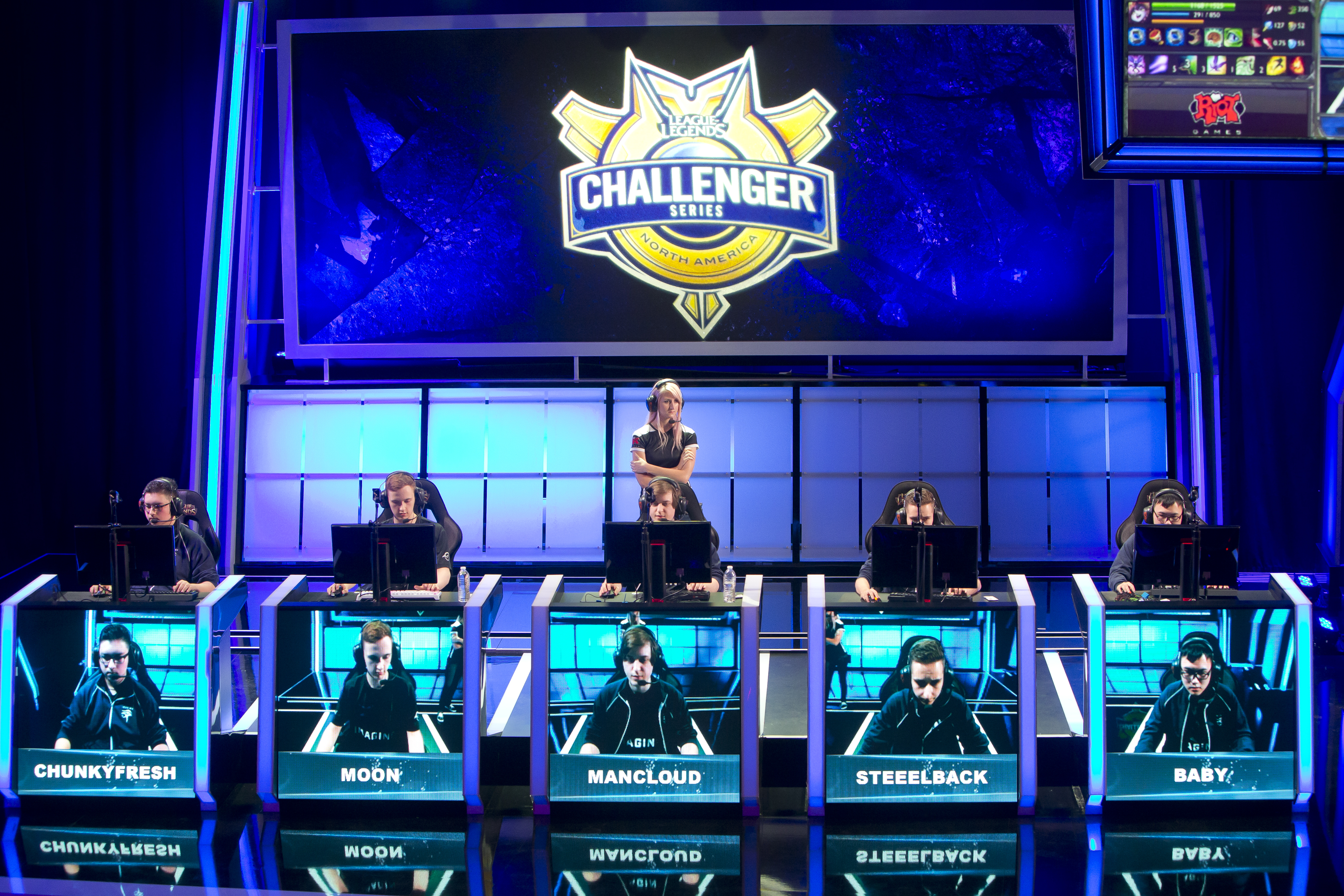
If you follow competitive League of Legends, chances are you’re paying attention to what’s going down at Worlds—Riot’s month-long international event in Europe. The stream garners more than 500,000 concurrent viewers as fans from every time zone tune in. For some, having to get up at four in the morning is a small price to pay to watch the best teams from all over the world duke it out.
For every pro player, winning Worlds is the dream, the end goal: irrefutable proof that at one point, you were the best and proved it. It’s a tough task. Most players don’t even get to try before retiring, but for all the players that are there representing their regions right now, there was always a beginning. At point, the dream was not to win a championship: it was to go pro.
The fact is, going pro in video games isn’t something you can just poof into reality, even with hard work and some talent. If you’re good at something in life—math, for example example—you can channel that and become an engineer. In esports, being good at shooters does not automatically translate to a spot on an FPS pro team. There are hurdles. Whether it’s time, money, or just not catching a break, some gamers give up everything and still get nowhere. Often, being paid to play video games really is too good to be true.
But now that esports is starting to boom, opportunities for newcomers arise with greater frequency. The League of Legends Challenger Series is the best example of this—that’s where any ragtag amateur team can play for their chance to go pro. On paper, it’s easy: find some players, start a team, join the circuit. But with the costs, time required, and risks involved with chasing the gaming dream, making it happen often feels impossible.
These fresh Challenger teams fight battle-tested LCS teams in a duel to the virtual death
A new challenger
In League of Legends, the ‘Challenger’ tier is the upper echelon of the ranked ladder. Spots are limited to 200 individuals, usually pros and top-level streamers. That works the same way for ranked 5 vs. 5 team play, where teams at the Diamond level often encompass individual players from Challenger.
To qualify for the Challenger Series, however, your team must be placed in the top 20 of the whole ladder by the designated cut-off time. The top four of those teams are given auto-qualification into the Expansion Tournament, the assumption being that they’re good enough to compete at the pro level if they perform well. For the other 16, they must brave the murky waters of the Season Qualifier, a three week long gauntlet, before they can join the pre-qualified teams.
The good news is that the ladder itself is accessible to everyone, but obviously you’d be hard-pressed to compete if you’re new to the game. Still, it’s not enough to just be in the top 20, win the qualifier, the tournament, and then ride off into the sunset. Riot’s format dictates that the top teams of this tournament will eventually fight the bottom LCS teams for their spot—yes, these fresh Challenger teams fight battle-tested LCS teams in a duel to the virtual death with everything on the line. It’s brutal.
Keep up to date with the most important stories and the best deals, as picked by the PC Gamer team.
At some point, players within these Challenger teams must realize that they’re competing against teams with structure, staff, sponsors, and bigger names. Again, the risks continue to grow and the chance of success feels like it’s dwindling away. The rules start to seem less fair, and the pressure starts to sink in. And the pressure doesn’t start there. Before you do anything else, you have to actually find a team.

Looking for group
The great thing about competitive online games is that it’s fairly easy to mingle with players at your skill level. The culture around online gaming and the systems behind ranked ladders ensures that good players eventually get matched with equally-skilled players. Ultimately, they’ll fall in with pro players if they reach the top. Often, that’s enough to get you noticed and perhaps get picked up by a team. Most of the time, however, it isn’t.
Maria 'Remilia' Creveling, support player for the upcoming LCS team Renegades, has seen the road less travelled—and it wasn’t always pretty. From forming a Challenger team to winning the final game that solidified Renegades’ future in the LCS, she’s seen the whole process of going pro in League of Legends. Recalling days before Renegades was even a thing, she stresses the importance of networking.
“Getting on a team in the Challenger scene was really difficult for me,” Remilia says. “It involves a lot of networking and that's something I'm not particularly good at. When you play with the top players, if you aren't making friends with the best, then you're missing a lot of opportunities to create teams.”
While networking is important, most of a gamer’s skill comes from climbing the solo queue ladder. Coming from experience, it’s not easy to make friends along the way. You play your game and then you play another one; you don’t often see the same teammates again.
Remilia continues, “I am entirely a solo player. I played this game for six years alone, was awful at networking, and got a few lucky breaks with teams willing to give me a shot. In order for me to really thrive in a team environment, I need the perfect type of teammates to make me feel comfortable. I am non-confrontational, I really hate conflict but it's hard to avoid in this profession.”
“I took the opportunities that were given, even if they seemed sketchy or too good to be true,” Remilia says. “I moved across the country and supported myself for almost a year while trying to go pro, and I got a random offer from [Team Dragon Knights] that involved me moving to a gaming house the next day. I jumped at opportunities like that since I lived and supported myself for a long time. I'm not afraid to take risks. I even went to China to [train and play] with Roar.”
On the next page: Renegades have to play like the best to beat the best.

